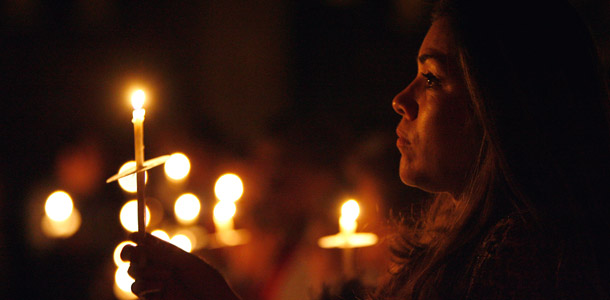Why is religious practice found in almost every culture throughout history? Can religions continue to occupy a place in the secular, Western societies of the 21st century? Do religions need to evolve as globalization brings different cultures closer together?
As Western societies become more and more secular in outlook, these questions have gained increasing currency. In certain ways, living a healthy, balanced religious practice has become more difficult as the old certainties transmitted by our culture continue to erode. Balance fades from view; extremes become seductive.
On the one extreme of our culture, more and more people call into question the role of religions in civic life; some even suggest that religious practice has become a useless appendage for a culture that has adopted a mature, adult view of the world. On the other extreme, there are those who, having been unsettled in their convictions, cling even tighter to established beliefs and consequently feel threatened by religious diversity.
It is thus essential to understand the purpose of religious practice and its place in a world going through immense change at the outset of the 3rd millennium.
An exhibit entitled
God(s): A User’s Guide, currently underway at the Museum of Civilization in Gatineau, sets the stage for this Catholic Focus. Two religious leaders help viewers comprehend the practice, purpose and symbolism behind religious practice: Rabbi Reuven Bulka, spiritual leader and author of numerous books on religion and psychology; Paul-André Durocher, Archbishop of Gatineau. Filmed on-site at the Museum of Civilization, this episode helps viewers grasp one of humanity’s most ancient, yet mysterious, languages.
The new Catholic Focus, entitled
Religion, a Language of Hope, will be broadcast tonight, Wednesday April 11th at 7:05pm. It will be rebroadcast on Saturday, April 14th at 7:00pm.
CNS photo
 Why is religious practice found in almost every culture throughout history? Can religions continue to occupy a place in the secular, Western societies of the 21st century? Do religions need to evolve as globalization brings different cultures closer together?
Why is religious practice found in almost every culture throughout history? Can religions continue to occupy a place in the secular, Western societies of the 21st century? Do religions need to evolve as globalization brings different cultures closer together?